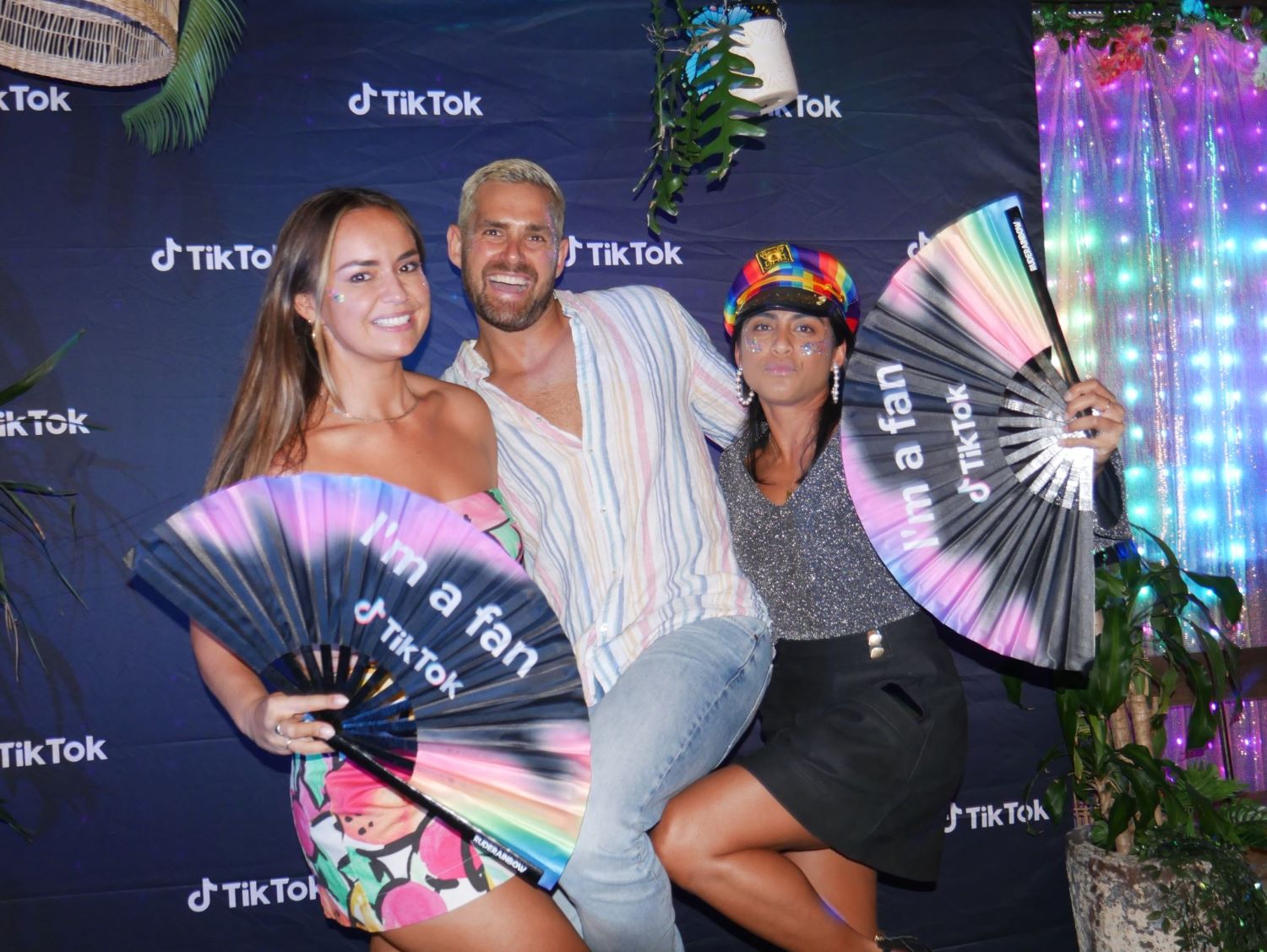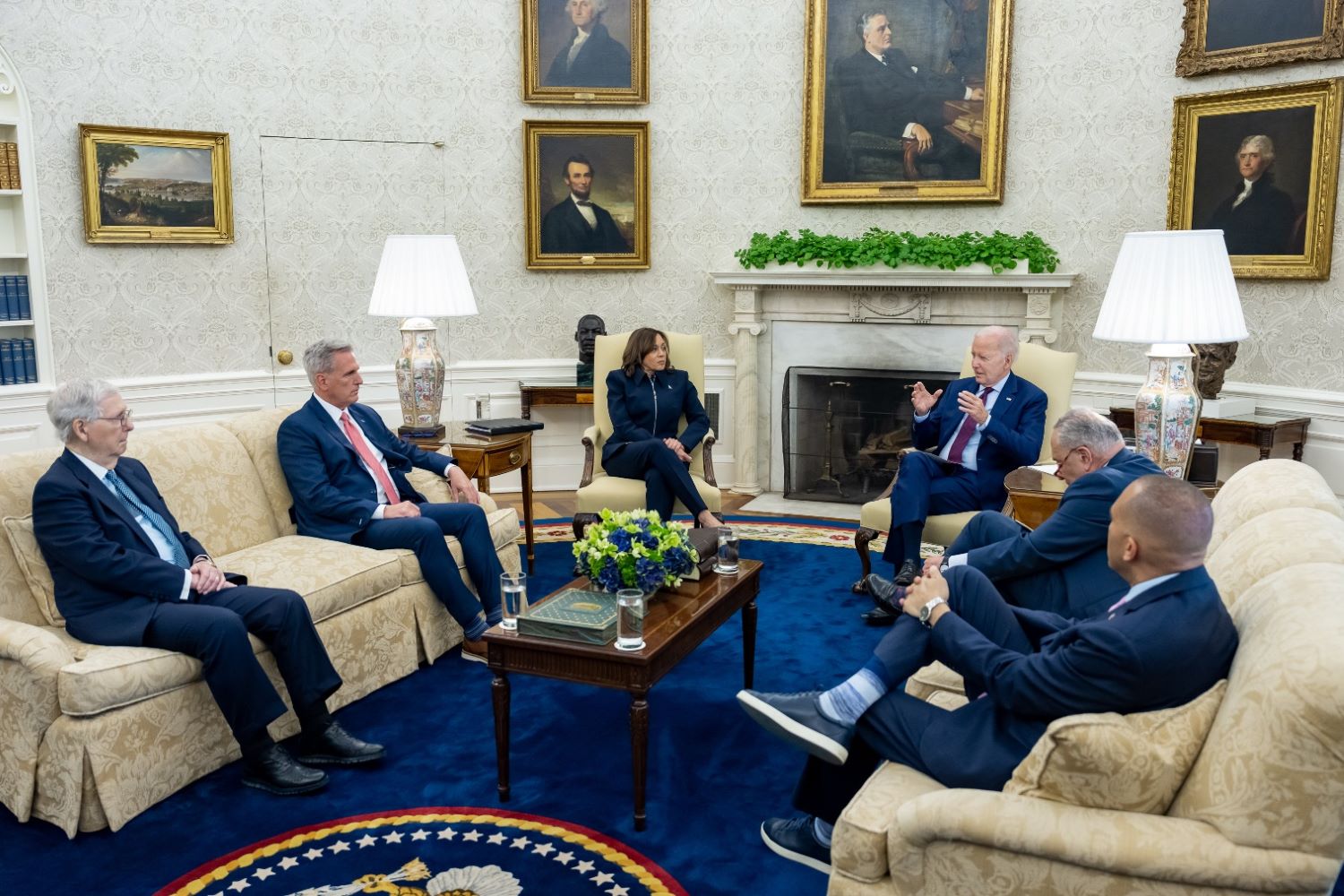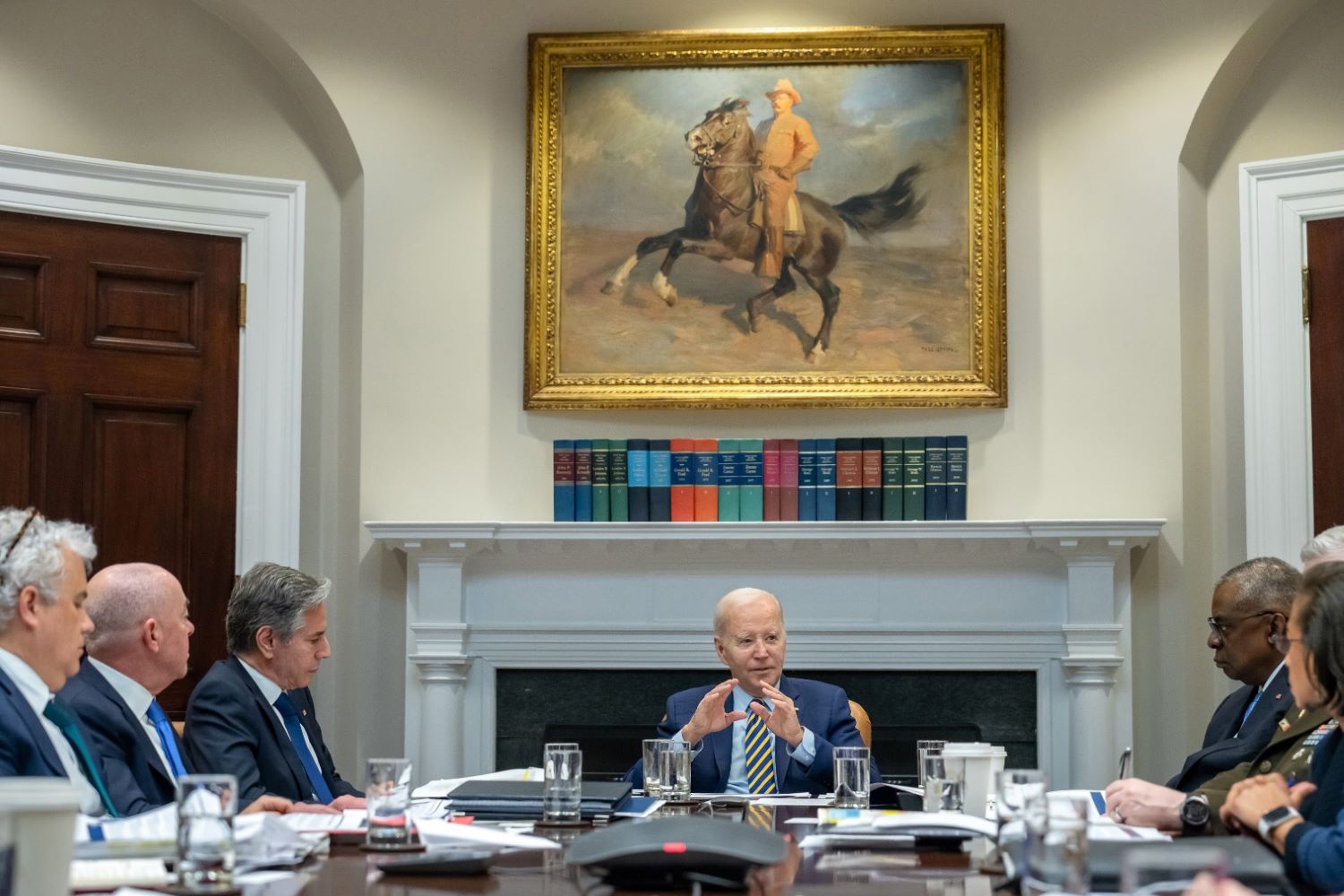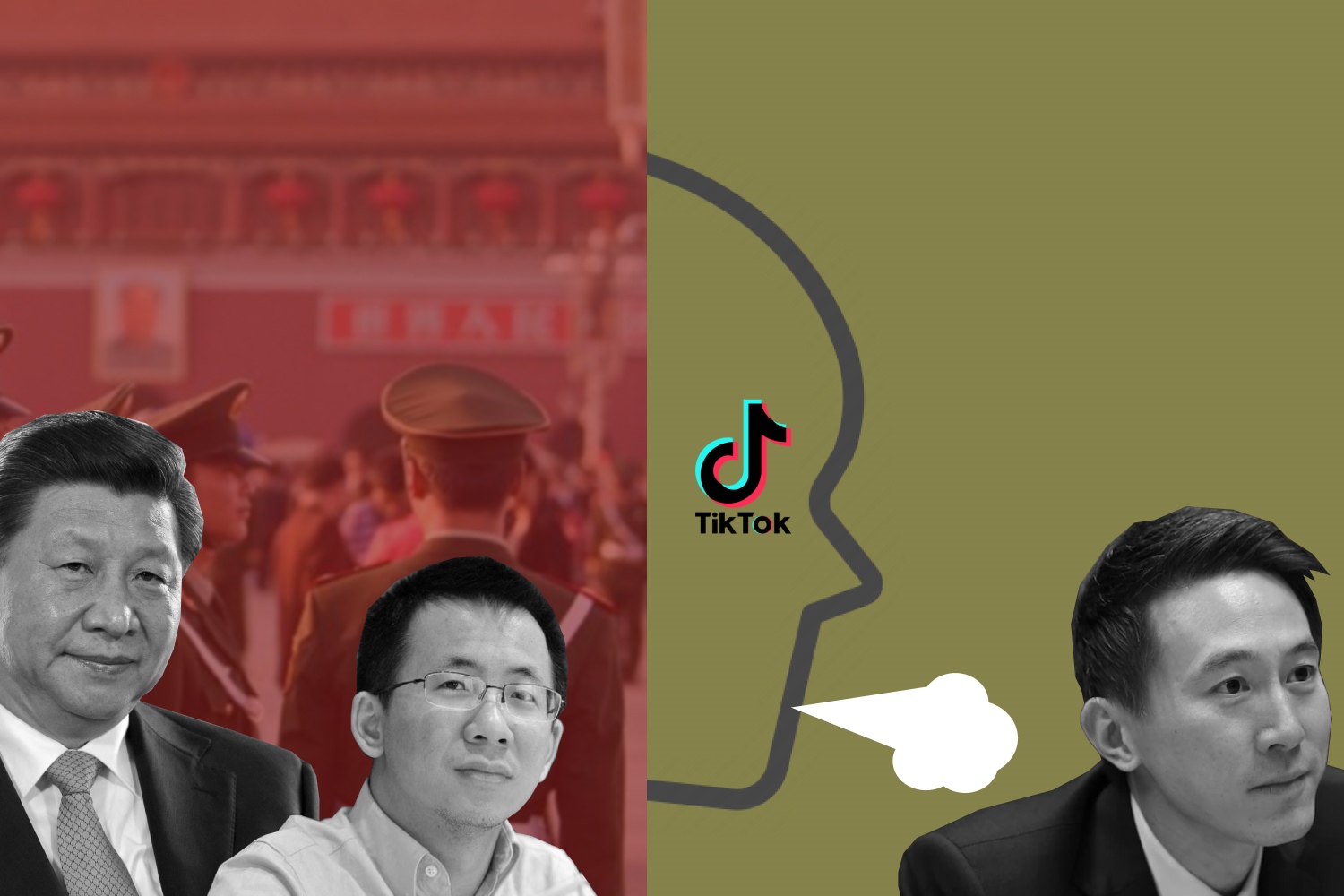The Never-Ending Controversy Surrounding TikTok – Examining Allegations of Chinese Spy Agents
The primary reason that so many teens, along with individuals of all ages, remain glued to TikTok is the app’s content discovery feed, commonly referred to as the “For You” page or FYP. This page serves as the app’s primary timeline, where users may discover new content. TikTok is driven by a proprietary algorithm that employs AI and machine learning to populate the FYP with the most relevant content to show a specific user.
With the powerful support of that crazy algorithm, TikTok is able to capture over one billion active users across the world, and that number continues to grow. TikTok seems to be a fun buddy, but behind that “addictive” platform, there’s a threat that’s getting more transparent.
TikTok has been accused of being a Chinese spy agent. Some in Washington have expressed fear that the Chinese government could penetrate the app in order to spy on American users or acquire access to their data. Others have expressed concern that the Chinese government could use the app to promote propaganda to a US audience.
This is reasonable enough to ban TikTok, but before getting into the main reasons, let’s take a look at the flourish of this “dancing app”.
TikTok – The Jaw-Dropping Rise of 15 Second Videos
TikTok / Douyin was first introduced into China’s app market in September 2016 by parent company ByteDance, and it grew to 100 million users in a flash. TikTok, the international version, was released in September 2017 following the acquisition of Musically, a video-sharing business.
Douyin retained its original name in China, and the twin apps are now available in 141 countries and 39 languages on the App Store and Google Play.
TikTok has achieved significant success in terms of user numbers, with 1 billion monthly active users (MAUs). This constitutes approximately 20.8% of the total 4.8 billion internet users worldwide. Moreover, out of the 4.48 billion active social media users globally, 22.3% regularly engage with TikTok.
Despite hurdles and uncertainty, such as fears of a statewide ban during the Trump administration due to security concerns, TikTok has grown in both revenue and user base. Notably, the United States has emerged as a critical market for TikTok, aiding its growth and success.

As of August 2020, TikTok had officially reached 100 million monthly users in the United States, experiencing a remarkable 800% increase compared to the company’s figures in January 2018. According to estimates by eMarketer, TikTok currently has around 73.7 million monthly active users in the U.S., and it is projected to reach 88.7 million by 2024.
In terms of social network usage in the U.S., approximately 31.1% of users access their TikTok account at least once a month. To provide a comparison, Instagram has a usage penetration of 53.9%, while Snapchat stands at 40%. Additionally, out of America’s 267.6 million mobile internet users, approximately 37.36% access TikTok on a monthly basis. These statistics indicate the growing popularity and widespread adoption of TikTok among U.S. users.
Given TikTok’s legislative commitment to support Certified Cyber Professional security and intelligence initiatives, these data are troubling. China’s intelligence agencies also lack the checks and balances that exist in the United States, which means they might potentially harvest and use data from TikTok without the monitoring and responsibility that exists in the United States.
But to understand the relationship between TikTok and Chinese government, we need to look at its parental company – ByteDance.
The Behemoth’s Suspicious Relationship with Chinese Government
After TikTok CEO Shou Chew testified for more than five hours on March 2023 before a Congressional committee, one thing was clear: US lawmakers remain convinced that TikTok is an urgent threat to national security.
But little do these lawmakers know that they were tricked!
Shou Chew isn’t in control of TikTok; he’s more of a showman. He can put on a fine suit and go before Congress, but despite the fact that Shou Chew is nominally the CEO of TikTok, he has no practical influence over the company.
To figure out who is truly controlling TikTok, we must travel back to the beginning to a man named Alex Zhu.
He was employed at SAP, a decades-old enterprise software company headquartered in Germany. While SAP was a technology company, it didn’t exude the vibrant atmosphere of an innovation hub. Instead, it specialized in databases, accounting systems, and payroll software—typical enterprise solutions.
However, Alex’s aspirations went beyond his current role. As early as 2012, he started contemplating the idea of establishing his own startup. At that time, it was initially an app for learning. However, with the widespread availability of smartphones equipped with front-facing cameras capable of capturing decent-quality video, teenagers were eager to create and share more content, including tricks, stunts, and, notably, lip-sync videos.
Recognizing immense avenue for growth, Alex and his team seized the opportunity and swiftly launched their own app, Musically.
To fully dedicate himself to Musically’s product and engineering teams, Alex made the decision to relocate to Shanghai. Despite experiencing tremendous success in the United States, the company remained deeply rooted in China.
In China, it is common for content companies to employ thousands of people who sift through every post and censor anything that the Chinese Communist Party deems inappropriate or objectionable.

While this raises ethical concerns, it is a significant cost that small startups must bear when operating in the country. However, it is considered a necessary step for growing a social app in China.
Despite these challenges, Alex and his team managed to drive Musically’s growth in China in 2017.
During the same period that Alex was building Musically, a Chinese software engineer named Zhang Yiming was launching his own social media company called ByteDance.
The company’s expertise in recommendation algorithms provided a strategic advantage for venturing into video. Meanwhile, Musically was enjoying success in the United States while ByteDance was struggling to gain traction there.
The stage was set for a merger, as ByteDance had dominance in China, and Musically was dominating the US market. Recognizing the synergies between the two companies, ByteDance acquired Musically for nearly a billion dollars, a strategic move that proved to be a worthwhile investment.
They introduced a new, unified app called TikTok, urging users to download it and log in using their existing Musically credentials. TikTok quickly skyrocketed in popularity and became the most downloaded app for iPhones in 2018.
Users became completely enthralled with the app, dedicating nearly one full hour each day to its usage. Within a remarkably short span of a few years, TikTok has achieved unprecedented success and captivated a global audience.
Alex, the former futurist who designed the app, had departed from the company, and Zhang Yiming was now leading ByteDance and overseeing TikTok. However, the situation was about to become more complex. In January 2019, an independent American Think Tank released a report labeling TikTok as a significant national security threat.
The main concern stemmed from the fact that TikTok, being under Chinese ownership, could potentially be compelled to provide user data to the Chinese government if requested. This raised concerns about data privacy and security, sparking discussions about the potential risks associated with the app’s ownership and operation.
The presence of TikTok was considered a substantial national security risk due to the significant number of military personnel worldwide using the app. The concern was that the data generated by these users would be routed back to servers controlled by ByteDance executives, who ultimately report to the Chinese Communist Party.
This raised alarms about the potential for unauthorized access to sensitive information and the potential exploitation of user data for various purposes. The involvement of military personnel further heightened the concerns surrounding TikTok’s ownership and its implications for national security.
A Threat Posed to National Security in the US
Despite assertions by ByteDance executives that they wouldn’t share user data with the Chinese government, the legal reality suggests they may have limited control in such matters.
This presented a new and unique challenge as previous Chinese tech companies had not reached the scale and global influence of TikTok. The critical issue lies in the fact that Chinese authorities possess significant power to request information from private companies.
And this misgiving was even confirmed by a ByteDance former employee.
Yintao “Roger” Yu filed a wrongful termination action against ByteDance in San Francisco Superior Court in March 2023. He claims to have served as the company’s head of engineering for US operations from August 2017 until November 2018.
Yu stated in a new complaint that the Chinese Communist Party (CCP) established a separate office in the company called the “Committee,” which supervised ByteDance and “guided how it advanced core Communist values.”
“The Committee maintained supreme access to all company data, even data stored in the United States,” according to the complaint acquired by CNN.
According to Yu’s lawsuit, the corporation made user data accessible to China’s Communist Party via a backdoor channel, regardless of where the data was kept.
Yu further alleged that ByteDance was “responsive to the CCP’s requests” to disseminate, elevate, or even erase content, referring to ByteDance as a “useful propaganda tool” for Beijing’s leaders.

A ByteDance spokesperson has denied Yu’s allegations, declaring he worked on an app called Flipagram while working for the company, which was abandoned due to business reasons.
“We plan to vigorously oppose what we believe are baseless claims and allegations in this complaint,” a spokeswoman told CNN.
“Mr. Yu worked for ByteDance Inc. for less than a year, and his employment ended in July 2018,” according to the complaint, which Yu disputes.
Earlier reporting from Yu’s complaint highlighted how, shortly after starting his work, he discovered that ByteDance had been engaged in a “worldwide scheme” to steal and profit from the information of others for years.
The scam entailed employing software that was purposefully released to “systematically” steal user content from competitors’ websites, primarily Instagram and Snapchat, and populate its own video services without consent.
According to the former employee, he was “troubled by ByteDance’s efforts to skirt legal and ethical lines.”
TikTok has previously demonstrated a readiness to promote storylines that coincide with CCP interests on the site. TikTok, according to Forbes, has many accounts managed by the CCP’s propaganda arm that have acquired millions of followers and tens of millions of views by uploading contentious content about US politics.
In the run-up to the 2022 elections, this has included attacking candidates from all major parties. As of this writing, there are no obvious indicators that the accounts are associated with China. TikTok stated that it would introduce labels sometime in 2023 to change this.
According to Newsweek, China is arguably one of the United States’ greatest geopolitical competitors, and the Chinese government has explicit goals of eroding the United States’ strategic dominance and influence. It has tried to accomplish this by attempting to establish worldwide economic and strategic footholds, particularly through data collecting and aggregation.
The ability to influence a huge number of US users to lean towards China-friendly viewpoints and sow societal strife represents a significant opportunity for China to pursue those goals.
Concerns over TikTok’s ties to China have prompted governments around the world to prohibit the app from official devices, and those fears have played a role in the increasingly strained US-China relationship. The Biden administration has threatened TikTok with a nationwide ban unless the company’s Chinese owners sell their stakes.
However, more than two years after the Trump administration issued a similar threat to TikTok, security experts say the government’s concerns, while serious, appear to reflect simply the possibility of TikTok being deployed for foreign espionage, not that it has been. There is currently no public evidence that the Chinese government spied on people using TikTok.
Is the US Exaggerating National Security Fears?
“It’s not that we know TikTok has done something, it’s that distrust of China and awareness of Chinese espionage has increased,” said James Lewis, an information security expert at the Center for Strategic and International Studies. “The context for TikTok is much worse as trust in China vanishes.”
When reporters approached Rob Joyce, the National Security Agency’s director of cybersecurity, to clarify his security worries regarding TikTok in December 2023, in December 2023, he issued a generic warning rather than a particular claim.
“People are always looking for the smoking gun in these technologies,” Joyce said. “I characterize it much more as a loaded gun.”
Technical experts also distinguish between the TikTok app, which looks to function very similarly to American social media in terms of user tracking and data collecting, and TikTok’s approach to governance and ownership. It is the latter that has caused the most alarm, not the former.
The US government has expressed concern that China may utilize its national security legislation to gain access to the huge quantity of personal information that TikTok, like most social media apps, obtains from its US users.
According to western legal experts, the regulations in question are exceptionally broad, requiring “any organization or citizen” in China to “support, assist, and cooperate with state intelligence work,” without defining what “intelligence work” implies.
If Beijing gains access to TikTok’s user data, one concern is that the information could be used to identify intelligence opportunities, such as assisting China in uncovering the vices, preferences, or pressure points of a potential spy recruit or blackmail target, or by building a holistic profile of foreign visitors to the country by cross-referencing that data against other databases it holds.
Even if many TikTok users are young teenagers with nothing to hide, some of those Americans may grow up to be government or industry professionals whose social media background could be beneficial to a foreign foe.
Based on what is publicly known about China’s regulations and TikTok’s ownership structure, security experts say these possibilities are plausible, and the US government should begin blocking TikTok across the country.
The Biden administration has threatened TikTok with a nationwide ban unless its Chinese owners sell their holdings in the company, highlighting the two nations’ increasingly hostile ties. Montana became the first US state to approve laws prohibiting the use of TikTok on all personal devices.
A Total Ban on The China-Based App: The 1st Shot
In May 2023, Montana ended up being the first state in the U.S. to implement a complete ban on TikTok when Republican Gov. Greg Gianforte signed a measure that’s more spreading than any other state’s attempts to restrict the social media app.
The law, which is set to go into effect on January 1, 2024, is expected to be contested in court and will serve as a test bed for the TikTok-free America that many national lawmakers have envisioned. According to cybersecurity experts, enforcing the prohibition may be tough.
TikTok representative Brooke Oberwetter said that the regulation violates people’s First Amendment rights and is therefore illegal. She declined to indicate whether the firm plans to sue.
“We want to reassure Montanans that they can continue using TikTok to express themselves, earn a living, and find community as we continue working to defend the rights of our users inside and outside of Montana,” Oberwetter said in a statement.
The American Civil Liberties Union (ACLU)of Montana and NetChoice, a trade association that includes Google and TikTok, both declared the bill unlawful.
The ACLU of Montana’s policy director, Keegan Medrano, stated that the Legislature “trampled on the free speech of hundreds of thousands of Montanans who use the app to express themselves, gather information, and run their small businesses in the name of anti-Chinese sentiment.”

In response, Gianforte said TikTok posed a “significant risk” to sensitive state data when Montana banned the app on government-owned smartphones in late December. A comparable prohibition exists in more than half of the United States’ states and the federal government.
Gianforte also declared on Wednesday that, beginning from June 1, 2023, he will outlaw the use of any social media applications associated with foreign opponents on state equipment and for state enterprises in Montana. He mentioned WeChat, whose parent firm is based in China, and Telegram Messenger, which was created in Russia.
The bill, written by the attorney general’s office, breezed past Montana’s Republican-controlled legislature.
Gianforte had hoped to broaden the TikTok bill to include applications associated with foreign rivals, but lawmakers did not bring him the bill until after the session finished this month, prohibiting him from making any changes.
The state of Montana’s new law outlaws TikTok downloads and will fine any “entity” — an app store or TikTok — $10,000 per day for each time someone “is offered the ability” to use the social media site or download the app. Users would be exempt from the sanctions.
Opponents argue that Montana residents may simply get around the prohibition by using a virtual private network, a service that protects internet users by encrypting their data traffic, preventing outsiders from spying on their web browsing.
According to Montana state officials, geofencing technology is utilized with online sports gambling apps, which are disabled in jurisdictions where online gambling is prohibited.
Though many Montana politicians supported the prohibition, analysts who watched the debate closely predicted that the state would have to defend the act in court.
Officials will also face criticism from advocacy groups and TikTok users who do not want their beloved app to be removed. The app’s amusing, funny videos and ease of use have made it extremely popular, and US digital behemoths such as Snapchat and Meta, the parent company of Facebook and Instagram, regard it as a competitive threat.
TikTok has been enlisting the help of so-called influencers and small companies to fight the ban. Others who haven’t been a part of the company’s public campaign are concerned about what politicians are doing.
Montana’s TikTok ban also comes amid a growing campaign to regulate and, in some cases, outright prohibit social media use among children and teenagers. Several measures in Congress are attempting to address the issue, including one that would bar all minors under the age of 13 from using social media and require guardian consent for anyone under the age of 18 to create an account.
Some states, notably Utah and Arkansas, have already passed legislation requiring parental authorization for social media use. Similar legislation is being considered in other states. California passed legislation last year mandating businesses to improve data protection policies for minors and provide them with the highest privacy settings.









